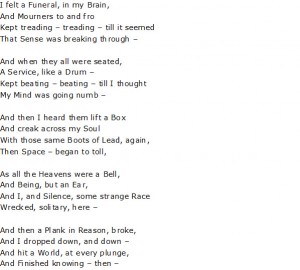The mariner has written many times about the increasing chaos that already is in progress and increases in intensity as the world moves through transition to a new age. Such a transition has occurred under many names: the mastery of fire; organized language, the Greek age of wisdom; the Roman Empire; discovery of the Americas; the Enlightenment; colonialism; the industrial age, etc.
While easily encapsulated in a phrase, each new age took generations to emerge into a new state that was stable and understood by the masses. Each new age catapulted over old mores about culture, faith and productivity.
For simplicity, the mariner limits this treatise to the western hemisphere but acknowledges that the entire world suffers the same chaos. Further, he limits transition to religion, using it as a model for any subject.
In the western hemisphere, Christianity is the dominant religion. Once Henry the Eighth (and Elizabeth I) split from the Holy Roman church to form the Church of England, Christianity began moving into a new age that gave rise to reformation and an era of theological and liturgical freedom that continues today. Until the age of communication began with the introduction of the telegraph, telephone and television, religion was free to redefine itself parochially as the Baptists do and organizationally as the Methodists and other denominations do. Even cultural differences exist side by side. For example, the Mennonites and Amish, and the cultish branches that test faith with snakes, etc. Faux Christian groups are more or less accepted as well. For example the Mormons, Scientology and mega churches are part of the “normal” range of religious practice.
As the transition to a new age quickens, religion will lose its ideological independence. In the twenty-first century, religion will accommodate three wholly different disciplines: secularism, quantum mechanics and technology.
Secularism is founded primarily on the separation of state and religion. In the United States, James Madison is credited with the establishment of secularism. Secularism was slow to grow into a major “movement” because religious institutions remained influential in ethical and moral behavior. Still, the state and its citizens were free to improvise outside religious doctrines.
The state developed capitalism into a valid religion of its own. Today, capitalism so predominates that the ethics and morals of religion are virtually irrelevant except for those still active in congregations who, nevertheless, are capitalists first, religiously ethical and moral second.
The secular movement has fostered ethics and morality outside the precepts of faith. Secularism has permitted regionalization of ethics. The American South has changed little during the twentieth century. Other regions emphasize middle class morals and false Christian religions such as Mormonism, Scientism and mega church organizations with the trappings of Christianity but actually worship capitalism more than Christianity. The accommodation of capitalism into Christian practices is an excellent example of the move to a new age. The transition is far from over as religion struggles for a new identity.
Quantum Mechanics is the study of the smallest pieces of energy and matter – many magnitudes smaller than one atom. At these nanoscopic levels, physicists discovered that particles of existence behave differently than the assumptions accepted by classical physics. For example, one quark (a very small piece of energy or mass) can appear in different places at the same instant. The mariner could run on with many examples but he will leap to the oddly confusing assumption in Quantum Mechanics that there are eleven simultaneous dimensions and you and the mariner can be living different lives in each one. Do not feel inadequate about lack of understanding; only the rare few can perceive this possibility – and they likely are quantum scientists. Further, astrophysicists grow more certain that there are other universes as well.
Religion is in the same circumstance it had with Copernicus and Galileo hundreds of years ago. Science makes advances that blatantly challenge the Old Testament description of creation, Adam and Eve, Noah and the ark, the divine nature of humanity and many other biblical assumptions. The combination of religion, secularism and scientific advancement puts pressure on religion to reconsider the divine nature of Jesus.
As Copernicus and Galileo challenged the theological importance of man (the church) by clarifying that the Earth was not the center of the solar system nor was the solar system unique among others in space, Quantum Mechanics will challenge the vertical inheritance that flows from God to Jesus to man. Religion is bound at the moment to a singular focus between God and humans. Multiple dimensions and universes along with the growing acceptance of other life in the universe will stretch the vertical – perhaps reinventing the role of Jesus and increase the potential for Aryanism, teleology and determinism to be incorporated into religious ideology.
Technology is the engine that accelerates the end of this age. It propels us toward global relationships that are bound together not by geography, economy, culture or race – but by the ability to be part of the unity of all individuals via the Internet. Technology is a force that eventually will equalize human importance across the planet. Neil deGrasse Tyson has a term for this unification: Type One Planet. (Tyson was the host of the Cosmos series and an early advocate of Quantum Mechanics.)
Medical technology in particular will press religious definitions of birth and death as humans live longer and longer, eventually capable of virtually permanent life. The sanctity of work will be altered as more and more technical inventions change the way we live. Consider the impact of the automobile, airplanes, availability of food, and the atomic bomb. Technology can easily redefine what is important in our lives. It will continue to do so.
Put them all together and you have the knowledge base that will redefine faith, that which is sacred, and the manner by which we define our ethics and morals. There is still a way to go in this chaotic environment. We must reign in the corporations, entrepreneurs and others who are leveraging the chaos to their own benefit. In the end, as we adjust to the new age, the four horsemen will forge a new religion.
Ancient Mariner


